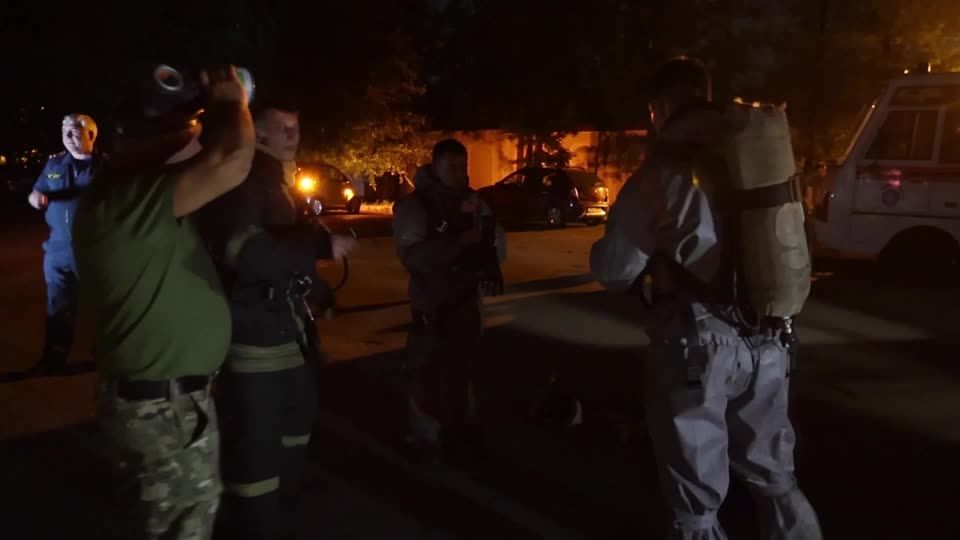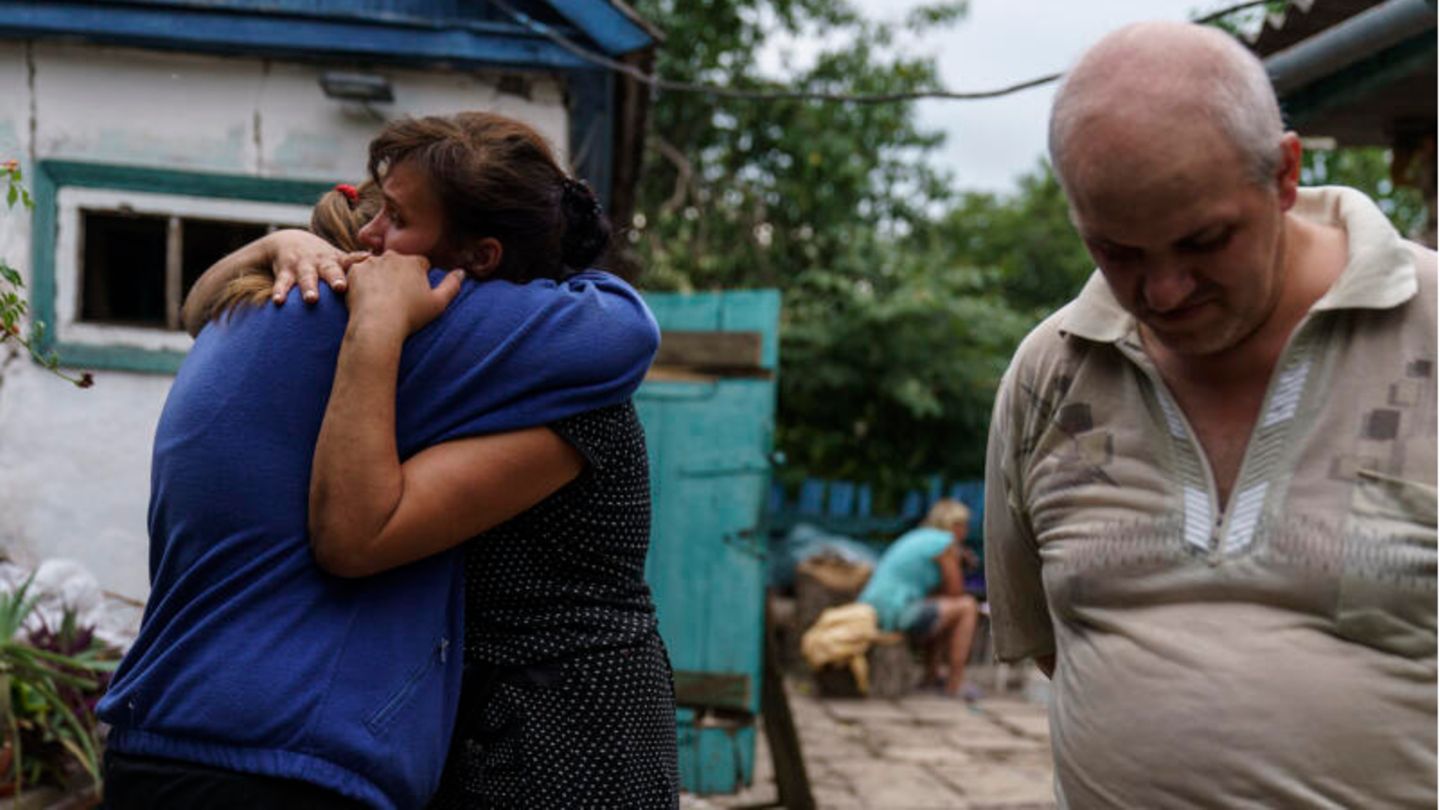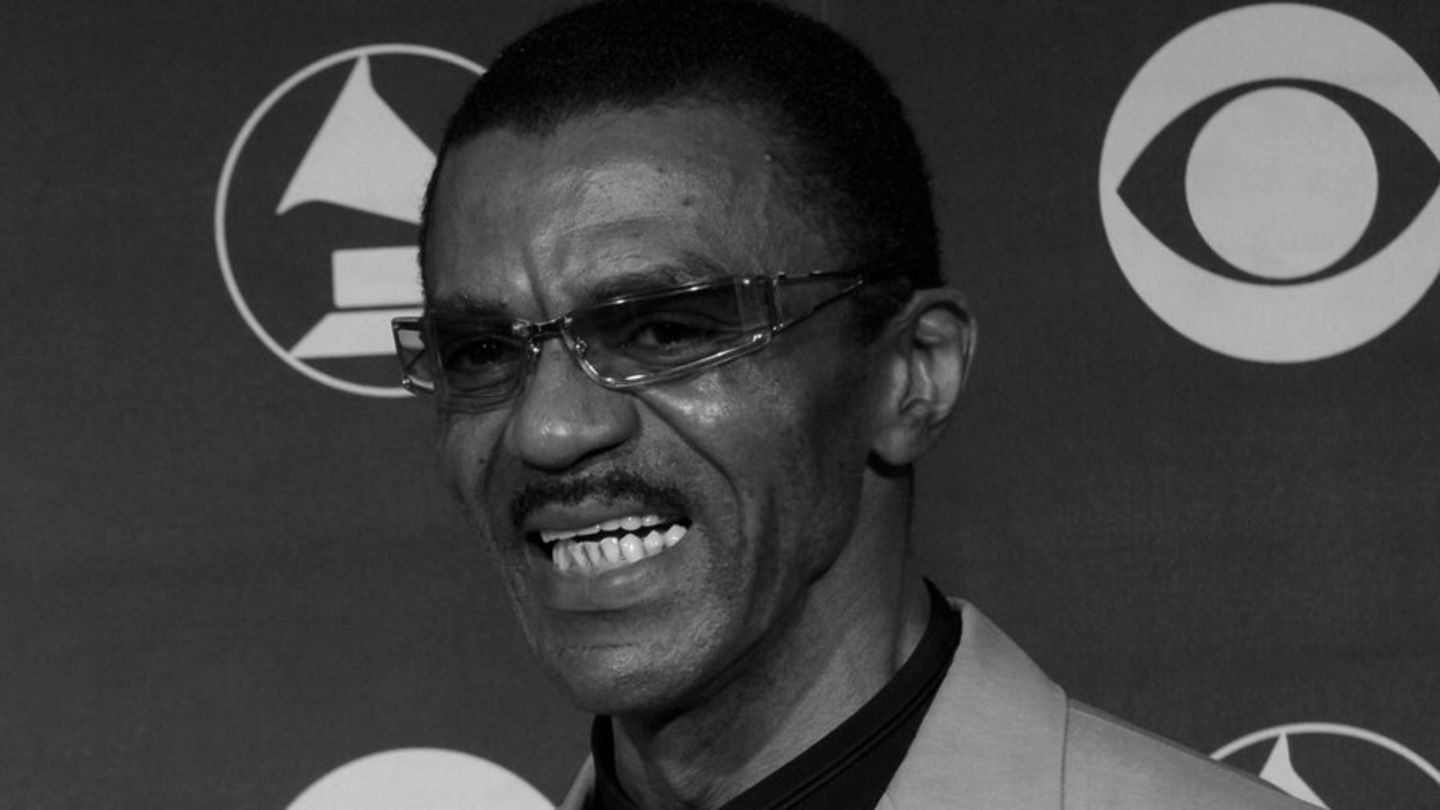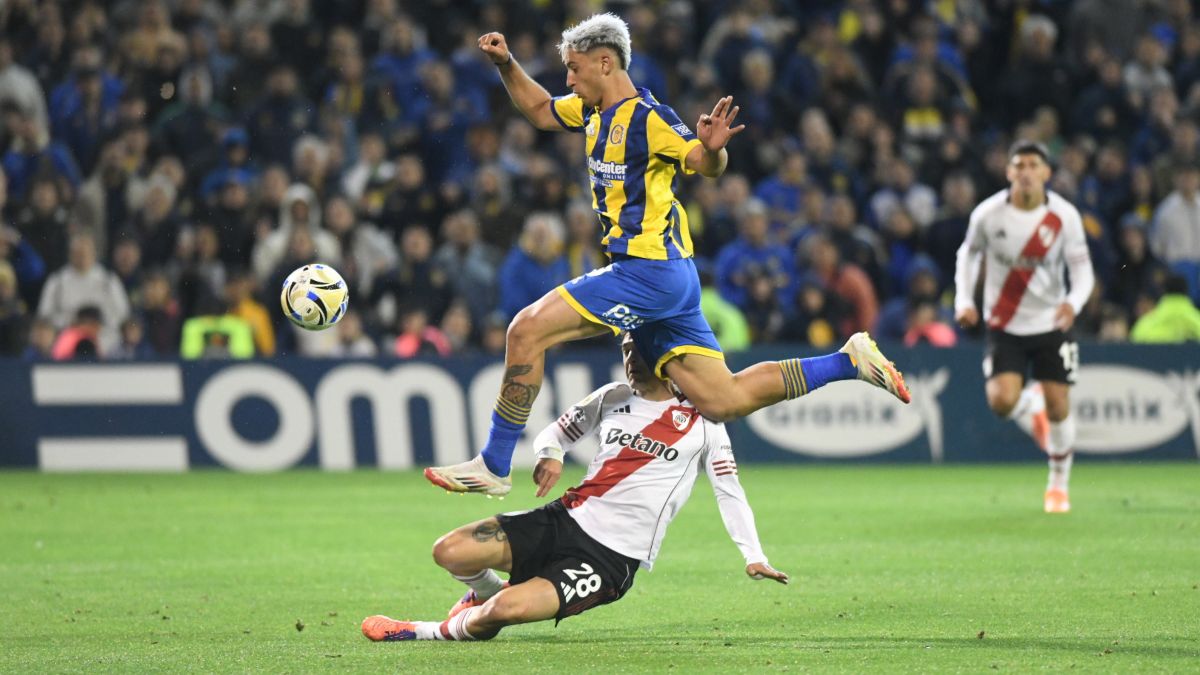As Russia continues to attack Donbass, many Ukrainians are putting up fierce resistance. But there are also Ukrainians who support the attack. A site visit in the Donbass.
When Nadiya Gorbunova talks about her neighbors who are queuing at a post office in the Ukrainian city of Mykolaiv, she crosses the street to be on the safe side and speaks more quietly. The 58-year-old suspects that around 80 percent of them support the Russian troops.
These are stationed on the other side of the river, less than ten kilometers away, and are on orders from the Kremlin to conquer the Donbass – the industrial east of Ukraine where their hometown of Mykolaiv is located.
Ukrainian in Donbass: “The aggressiveness is noticeable”
“There are no physical altercations, but the aggressiveness of the pro-Russians is noticeable,” says Gorbunova. Her jute bag leaves no doubt as to which side she is on: it shows a Ukrainian saint destroying a tank with a flaming sword.
The conflict is dividing residents of frontline villages and towns, who have been locked in a relentless battle between Ukrainian and Russian troops for weeks. “There is no harmony and no love here,” says Gorbunova.
Split of Donbass started already in 2014
The drifting apart of the people of Donbas began in 2014, when pro-Western Ukrainians ousted pro-Russian President Viktor Yanukovych and voted for democracy in the Maidan revolution. And when, in the same year, Russia annexed Ukraine’s Black Sea peninsula of Crimea.
After Russia’s invasion of Ukraine in February, Ukrainian forces are now fighting in Donbass against pro-Russian separatists, who are militarily and financially supported by Russia and have already taken over a large part of the region.
Support for Russia difficult to measure
Although the inhabitants of the Donbass, which consists of the regions of Donetsk and Luhansk, predominantly speak Russian as their mother tongue, they are not necessarily ethnically Russian. How great the sympathies for Russia actually are is difficult to estimate.
According to the British Defense Ministry, the frontline town of Bakhmut is the area in Donbass where the Russian offensive was most successful last month. Artillery fire constantly echoes through the abandoned houses, tank traps and roadblocks divide the city into two areas.
Some in Donbass support Russian invasion
But another border runs through Bakhmut: The residents are also “divided into two camps internally,” says Sergei Nikitin. “Everyone has their own opinion and everyone keeps their mouths shut.”

However, the 52-year-old lets his own convictions shine through: he talks about the “decline” in Ukraine, the closure of many factories since the end of the Soviet Union and the possibilities of finding work in Russia.
Ukrainians: “You can’t prove anything to fools”
Mykhailo Matsoyan heard neighbors say “it would be great if the Russians came.” He then confronted her, says the 38-year-old. “It almost got into a fight that I had to leave,” he says. “You can’t prove anything to fools.”
Another resident, just stepping out of a pharmacy, doesn’t want to talk about politics. “We are all waiting for peace. I make no difference. I love everyone,” he says, and hurries away.
The 56-year-old soldier Sergei drinks a coffee at a street kiosk. “You meet people here who are on the side of Russia,” he says. “I explain to them that it wasn’t us who came to their country with weapons. I always say: If I come to my neighbor with bread, he will set the table. But if I come with a gun, he will fight back .”
Many long for peace – no matter what
Bachmut’s neighboring municipality of Soledar is just a stone’s throw from the Russian-controlled area. It is suspected that Moscow’s troops are already on the outskirts of the city, maybe even inside the city limits. Soledar is constantly under fire and completely devastated.
Personal convictions are secondary here, the situation is too serious for that. “We’re just waiting for this to be over,” says 59-year-old Oleg Makeev. “We don’t care whether they’re Ukrainians or Russians. We want a peaceful life, nothing else.”
Source: Stern
David William is a talented author who has made a name for himself in the world of writing. He is a professional author who writes on a wide range of topics, from general interest to opinion news. David is currently working as a writer at 24 hours worlds where he brings his unique perspective and in-depth research to his articles, making them both informative and engaging.




